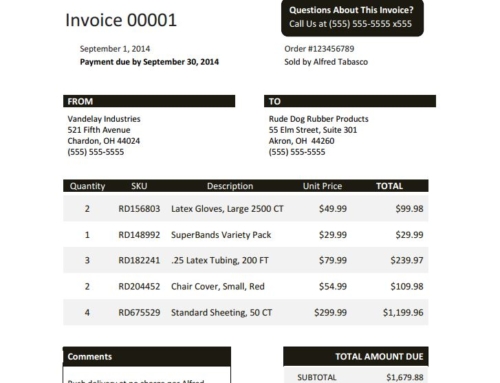How productive are you in your day to day activities? Before you answer, think about what that really means. The term ‘productivity’ can be defined as the efficiency of a person in converting inputs into useful outputs; so in terms of an A/R collector, that means completing tasks that directly relate to turning invoices into cash. For example, calling a customer about a past due invoice, settling a dispute, helping a customer with a payment plan, etc. In many cases, collectors are not as productive as they could be due to the enormous amount of time spent on things like data entry, figuring out who to call, sifting through aging reports, and other non-value added tasks.
Want something better than excel? Try Lockstep Inbox, our free AR application that will show you real time aging and other AR KPIs in minutes (yes, it’s free).
If that sounds familiar here are 4 surprisingly simple, yet extremely effective debt collection techniques to help you become more productive.
RELY ON A SINGLE SOURCE OF INFORMATION
How much time are you wasting jumping from one system to the next in search of sales, customer, contact, credit, shipping, and other information related to an invoice? Collectors spend far too much time gathering information from multiple sources when all of it could be (and really should be) available in one integrated system where the entire team can access it. With an AR management system you can toss out note pads and post-it notes and start spending that time collecting!
In fact, Paystream Advisors recently reported that companies who automate their credit and collections process spend 3X more time soliciting customers for payment than customers using manual or non-automated processes because they significantly reduce the time wasted preparing for their calls.
FOCUS ON YOUR PRIORITY ACCOUNTS
If cash flow is your concern, as it is for all CFO’s, credit managers, and collectors, it’s important to focus your efforts on those accounts that demand attention before all others. These could be accounts that have orders on hold due, have a long list of broken promises, have large dollar amounts outstanding, etc. After you’ve done what you can there, tend to any other accounts that may need an additional reminder about a payment, etc.
That makes invoice collection sound easy, we know that it’s not! If you have a larger number of invoices to manage you very likely do not have the time to carefully prioritize a to-do list as described above when your inundated with data entry and other mandatory (yet time consuming) clerical work. Many companies are discovering that they can get around all that through accounts receivable automation which can eliminate your most time consuming tasks and get you back to what matters most, like dealing with those large outstanding invoices!
MAKE EACH CONVERSATION COUNT
How do your customers prefer to be contacted about invoices? You may find that certain people are more responsive to email while others are most apt to talk with you on the phone or respond to a letter. If you can make notes about how best to contact repeat customers, you will know the best and most effective way to get in touch with them if an invoice goes unpaid. Here are a few other things to consider:
- Do you have a secondary contact in case your main contact is out of the office or leaves?
- An accounts receivable management system will allow you to store notes such as these where you and anyone else in your department can view them.
- Develop collection letter and email templates and call scripts (or use ours) to make sure you’re delivering the right message at the time for optimal impact and faster collection.
SPEND MORE TIME ON DELINQUENT CUSTOMERS AND DISPUTES
If you can eliminate some of that clerical work and focus your time and energy on delinquent accounts, settling invoice disputes, and learning how you can avoid them in the future, those 8 hours you spend at the office every day are going to be much more productive and the metrics will show it! The law requires that disputes are settled within 90 days of becoming apparent to the company, or else the company can lose out on the money. This is why it is imperative you focus your efforts on any open disputes.
Perfect your collection process by using our templates and scripts.
Browse the guide here.




